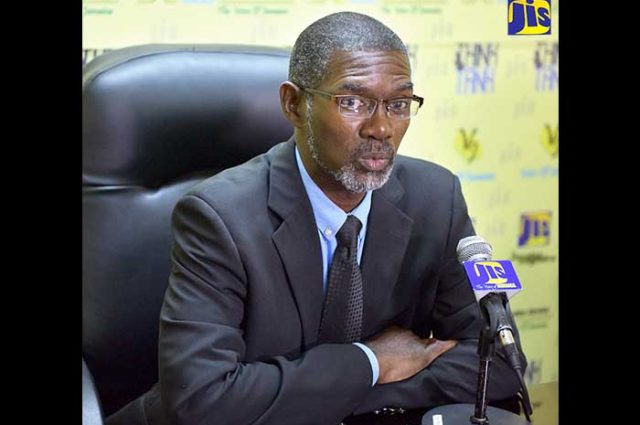JIS: The most recent tracer study and review for the Dispute Resolution Foundation (DRF) School Suspension Intervention Programme indicate that approximately 85 per cent of the beneficiaries maintain and utilise the conflict resolution and behaviour change methodologies imparted under the initiative.
Speaking at a Jamaica Information Service (JIS) Think Tank on May 4, the DRF’s Content Delivery Leader, Paul Hines, said the programme has been successful over the years in helping suspended students to manage conflict, improve communication and re-enrol in school, through various interventions.
“More often than not, some of those students who have been suspended from school have had myriads of problems, (including) with authority figures, and are unable to adjust to the realities of what school is about.
“So we help them during that suspension period to look at what’s required, (in order) to see their environment differently. We also help them to work through how they go back to school and apply what they have learnt during the period,” Mr. Hines said.
The programme, which started in 2008, aims to provide a safe space for youngsters who have been suspended from school, while engaging them in structured activities, including capacity-building workshops and sessions, to prepare them for re-integration in the school environment.
The programme operates in St. James, St. Catherine, Kingston and St. Andrew and, to a lesser extent, St. Ann.
Students are normally referred to the programme by schools. However, referrals can also be made by parents or the police.
The Citizen Security and Justice Programme (CSJP) III, which sponsors the initiative, also makes referrals through its case management outreach in communities.
Psychologist with CSJP III, Chaday Nelson, hailed the multifaceted approach by the DRF, through the programme.
She said the initiative is consistent with CSJP’s mandate to reduce crime, as it focuses on behaviour change and conflict resolution.
“In the Psychological Services Unit, we focus on how we can change attitudes and perceptions, (and) how we can give persons the tools they need, so that when they are faced with a conflict, they recognise that they have alternative ways of dealing with it,” Ms. Nelson said.
CAPTION: Dispute Resolution Foundation Content Delivery Leader, Paul Hines, speaking at a Jamaica Information Service Think Tank on May 4.


